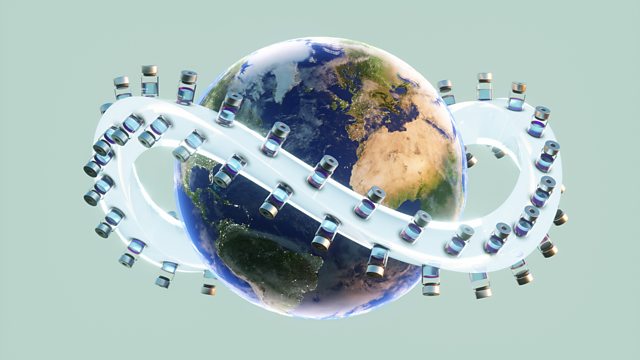
Rolling out the vaccines faster
What are the technicalities of scaling up vaccine manufacture and delivery any further?
Two weeks ago several G7 leaders called for an international treaty on Pandemic Preparedness for the future. This week 175 prominent leaders called for lifting the IP on vaccine design. And former UK PM Gordon Brown called on the G7 to finance vaccines for the world in the next two months. But are there technical difficulties that limit the pace of manufacture?
Anthony McDonnell is an economist at think tank Centre for Global Development who has been looking at the problem since last year. He suggests, amongst other things, one limit is the human expertise in manufacturing these brand-new technologies, with another being a level of vaccine nationalism that is seeing a lack of exports of components involved in manufacture.
Professor Trudie Lang heads the University of Oxford鈥檚 Global Health Network, and looks at health research across the world. She says in most countries there is no lack of public health or infrastructure potential for rolling out the vaccines, if only the supply existed.
The volcano that erupted explosively on St Vincent last week has led to many thousands of people being evacuated. Dr Joan Latchman of the University of West Indies Seismic Research Centre - who has monitored Caribbean volcanos for several decades - describes from Trinidad how the layers of ash mean recovery will take a long time, even if the explosions and pyroclastic dangers subside reasonably soon. Back in The UK, Prof Jenni Barclay and colleagues are examining rocks from the early part of the eruption, before the explosive phase began, to see if there are clues in the microstructure that could provide clues to the future.
And how do our brains so quickly tell a scream of delight from a scream of horror? Or of pain? Prof Sascha Fr眉hholz of the University of Geneva has written in the journal PLOS Biology this week about work looking at how we identify the nature of different human screams. One finding is that we perceive joy quicker than fear.
Grief is universal. It is something almost all of us will go through at some point. And it is something that the people we love will experience when we die.
Grief can be all consuming, it can make everyday tasks like getting out of bed, feel impossible. Which makes listener Oliver from Australia wonder - what is the point? It doesn鈥檛 bring what we lost, back.
Why have we evolved to be so affected by loss? Be it the death of a loved one, the end of a relationship or the loss of a job. Does it serve any purpose? Or perhaps it is just the price we pay for being a social species with such strong connections.
(Image: Getty Images)
Last on
More episodes
Broadcasts
- Sat 17 Apr 2021 23:06GMT大象传媒 World Service South Asia & East Asia only
- Sun 18 Apr 2021 00:06GMT大象传媒 World Service except East Asia & South Asia
Podcast
-
![]()
Unexpected Elements
The news you know, the science you don't

